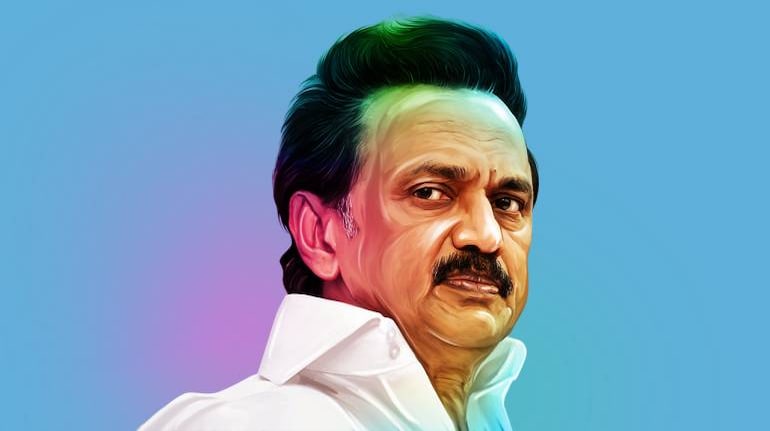



On February 3, members of Parliament representing the DMK and the Congress parties from Tamil Nadu walked out of the Lok Sabha, protesting governor RN Ravi’s decision to return a bill seeking exemption for the state’s aspiring doctors from appearing for the National Eligibility cum Entrance Test (NEET) for admission to medical colleges.
On February 4 again, the members of the Congress, the DMK, and the TMC staged walkout from Rajya Sabha following sloganeering over the same issue.
Follow our LIVE BLOG on Parliament Updates HereDravida Munnetra Kazhagam leader TR Baalu, who raised the issue in the Lok Sabha, said Tamil Nadu MPs were shocked at the governor’s decision to return the bill instead of forwarding it to the President for his assent.
Parliamentary proceedings are underway for the Budget Session that began on January 31.
What is the NEET exemption bill?The Tamil Nadu assembly passed a Bill on September 13 seeking exemption for the state from the NEET, which is mandatory for students applying for undergraduate medical, dental and AYUSH courses in government and private institutions.
The bill was tabled a day after a 19-year-old student from a village near Salem died by suicide, reportedly hours before he was to appear for NEET for the third time.
Watch: Health minister cycles to parliament for Budget sessionThe proposed Tamil Nadu Admission to Undergraduate Medical Degree Courses Bill, 2021, seeks permanent exemption from NEET in Tamil Nadu and provides that admission to undergraduate courses in medicine, dentistry, Indian medicine and homeopathy be made on the basis of marks obtained in Class 12, as was the case before NEET became mandatory in 2017.
Why did the governor return the bill?The governor returned the bill to the speaker on February 3 for reconsideration by the assembly, with the opinion that it was against the interests of students, especially those from the rural and economically poor backgrounds.
Ravi also referred to the Supreme Court ruling in the case of Christian Medical College, Vellore Association Vs. Union of India (2020), which upheld NEET while stating that a uniform entrance examination cannot be said to be an unreasonable regulatory framework.
Congress MP Manickam Tagore gives Adjournment Motion Notice in Lok Sabha to discuss Tamil Nadu Governor returning the Bill exempting the state from NEET Medical Exam.— ANI (@ANI) February 4, 2022
Before tabling the bill, chief minister MK Stalin’s government had constituted a committee chaired by retired high court judge AK Rajan. In its report to the state government, the committee said NEET had clearly undermined the diverse societal representation in undergraduate and higher medical studies by favouring mainly the affordable and affluent segment of society.
Why is Tamil Nadu opposing NEET?Until 2017, Tamil Nadu considered Class 12 marks for admission to medical colleges. But after a Supreme Court ruling in 2017, NEET became mandatory in the country. Since then, the state has sought exemption from the exam through an ordinance, court cases and negotiations with the Centre, but to no avail.
Tamil Nadu has one of the highest number of medical aspirants in the country, with one in eight doctors in India from the state, according to data from the health ministry provided to Parliament in 2019.
The agitation against NEET is said to have originated among the economically weaker aspirants in the state’s hinterland who have to compete with affluent students of urban areas.
The resistance escalated in September 2017 when S Anitha, a Dalit aspirant, died by suicide. This was after the Supreme Court refused on August 22, 2017, to grant Tamil Nadu exemption from NEET. Anitha was one of the respondents in the case.
Also read : Budget Session 2022 | Day 4: Political reactions pour in during the proceedings in the two housesPolitical parties have been wary of the anti-NEET protests. In 2020, the AIADMK government introduced a 7.5 percent reservation in medical colleges for government school students who clear NEET. The government also passed an ordinance against NEET in the assembly in 2017 but the President did not give his assent.
The ruling DMK, which came to power in May 2021, has been staunchly opposing NEET on several grounds, including infringement of the state’s rights. Exempting Tamil Nadu from NEET was one of its pre-poll promises.
When the bill was tabled in the state assembly in September, almost all parties, including the main opposition AIADMK, supported it. The Bharatiya Janata Party was the only party to walk out during the introduction of the bill.
Also read: Govt not to bring any legislative business in Rajya Sabha during 1st part of Budget SessionThis was the second time that a bill seeking exemption from NEET was introduced in the Tamil Nadu assembly. The President did not give his assent to the legislation passed by the previous AIADMK government in 2017.
Discover the latest Business News, Sensex, and Nifty updates. Obtain Personal Finance insights, tax queries, and expert opinions on Moneycontrol or download the Moneycontrol App to stay updated!
Find the best of Al News in one place, specially curated for you every weekend.
Stay on top of the latest tech trends and biggest startup news.